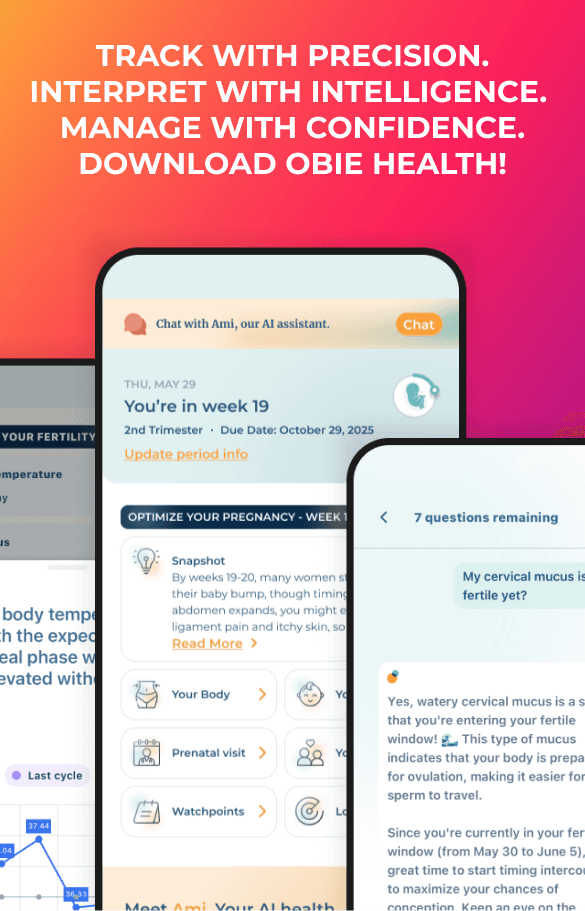What to Do When Your Breast Milk Runs Dry
Obie Editorial Team
A friend of mine recently stopped breastfeeding because she suddenly stopped producing enough milk. Though her doctor insisted that she could still breastfeed if she wanted to by trying to increase her supply, she graciously took it as nature’s hint and switched over to formula, since her baby was already on the fast track to solid foods at the time. However, her outlook wasn’t necessarily a common one. Many mothers fully believe in the health benefits of breastfeeding, and they will do it for as long as humanly possible without crossing any social boundaries. When she was telling me the story about her breast milk production slowly coming to a stop with every recent feeding, I became curious about how her doctor planned on increasing her supply, and I wondered if a medical intervention was required, or if it was just a matter of changing her diet.
Assuming thyroid function is normal, increasing your breast milk supply is actually a matter of changing your own habits. If you feel as though your baby isn’t getting enough milk during his or her feeding, you should try breastfeeding more often. When the breast is stimulated to produce milk, it will begin producing more naturally. You should also stop supplementing your supply with formula, so that your baby draws more milk at each feeding. Sometimes, low milk production is a result of your baby’s inability to latch on and suck properly. Practice getting your baby into the right position to latch, and then try compressing your breast as his or her suckling slows down. Your baby might just not know how to suckle properly yet, which would result in decreased production.
One recent study shows that when new moms tried increasing their milk supply for their babies, herbal galactagogues helped. Also, kangaroo mothering, or the process of keeping baby and mom together with skin-to-skin contact, helped production increase as well.
Of course, you should clear any dietary changes with your baby’s pediatrician first to make sure that he or she is still getting the proper nutrition needed for growth. If your baby seems to be losing weight or isn’t excreting any stool, you should see the pediatrician immediately. Poor nutrition can be detrimental to your baby’s growth and health. If your breasts start producing less milk, it isn’t necessarily nature’s way of saying, “stop.” See a lactation professional to find out how to keep going.
Source: Pamela Jackson: Complementary and Alternative Methods of Increasing Breast Milk Supply for Lactating Mothers of Infants in the NICU. Neonatal Network: The Journal of Neonatal Nursing. Volume 29 Issue 4 pp. 225-230 August 2010
Assuming thyroid function is normal, increasing your breast milk supply is actually a matter of changing your own habits. If you feel as though your baby isn’t getting enough milk during his or her feeding, you should try breastfeeding more often. When the breast is stimulated to produce milk, it will begin producing more naturally. You should also stop supplementing your supply with formula, so that your baby draws more milk at each feeding. Sometimes, low milk production is a result of your baby’s inability to latch on and suck properly. Practice getting your baby into the right position to latch, and then try compressing your breast as his or her suckling slows down. Your baby might just not know how to suckle properly yet, which would result in decreased production.
One recent study shows that when new moms tried increasing their milk supply for their babies, herbal galactagogues helped. Also, kangaroo mothering, or the process of keeping baby and mom together with skin-to-skin contact, helped production increase as well.
Of course, you should clear any dietary changes with your baby’s pediatrician first to make sure that he or she is still getting the proper nutrition needed for growth. If your baby seems to be losing weight or isn’t excreting any stool, you should see the pediatrician immediately. Poor nutrition can be detrimental to your baby’s growth and health. If your breasts start producing less milk, it isn’t necessarily nature’s way of saying, “stop.” See a lactation professional to find out how to keep going.
Source: Pamela Jackson: Complementary and Alternative Methods of Increasing Breast Milk Supply for Lactating Mothers of Infants in the NICU. Neonatal Network: The Journal of Neonatal Nursing. Volume 29 Issue 4 pp. 225-230 August 2010







